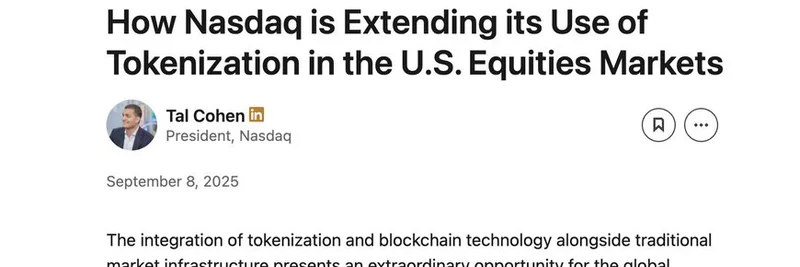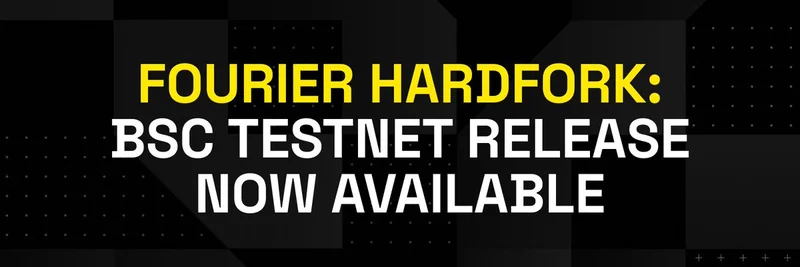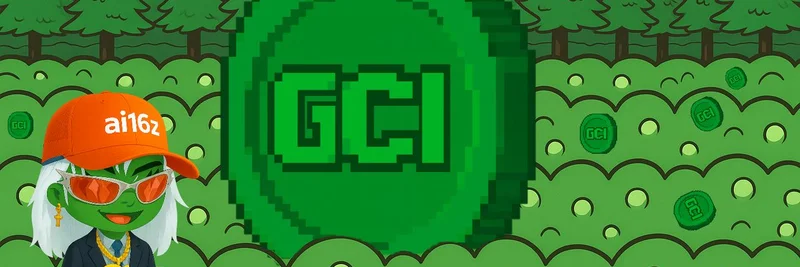In the fast-paced world of blockchain and crypto, big news from traditional finance giants like Nasdaq always sends ripples through the community. Recently, a tweet from @martypartymusic highlighted a groundbreaking announcement from Tal Cohen, President of Nasdaq. They're pushing forward with tokenization in the US equities markets, and it's got everyone talking about the future of finance.
What Happened?
Tal Cohen shared on LinkedIn that Nasdaq has submitted a filing to the US Securities and Exchange Commission (SEC) to allow the trading of tokenized securities on the Nasdaq Stock Market. Tokenization, for those new to the term, is basically turning real-world assets—like stocks, bonds, or even property—into digital tokens on a blockchain. This makes them easier to trade, divide, and manage.
The key quote from Cohen that's making waves: "I am excited to share that we have submitted a filing to the U.S. Securities and Exchange Commission (SEC) to facilitate the trading of tokenized securities on the Nasdaq Stock Market." This isn't just talk; it's a concrete step toward blending blockchain tech with traditional stock trading.
Why This Matters for Blockchain Practitioners
Nasdaq isn't new to innovation—they've been experimenting with blockchain for years. But this filing aims to ensure tokenized securities trade just like regular ones, keeping all the investor protections and market stability intact. Imagine faster settlements, automated processes, and less friction in capital management. For blockchain folks, this could mean mainstream adoption of tech we've been hyping for ages.
Cohen emphasizes that widespread institutional adoption is the real test. By integrating blockchain without disrupting the resilient US equities system, Nasdaq is setting a blueprint for how traditional finance can evolve. Reduced settlement times? Check. Better efficiency in collateral? Absolutely. And all while maintaining trust through regulations and oversight.
Tying It Back to Meme Tokens
You might be wondering, what's this got to do with meme tokens? Well, meme coins thrive on hype, community, and quick trades, often on blockchains like Solana or Ethereum. Nasdaq's move validates the underlying technology—blockchain and tokenization—which could spill over into the crypto space. If big players tokenize equities, it might pave the way for more real-world assets (RWAs) to enter the fray, creating hybrid opportunities where meme projects could interact with tokenized stocks.
Think about it: faster, cheaper trades could inspire new meme token mechanics, like fractional ownership of hyped assets or community-driven investments. Plus, as blockchain gets more legit in the eyes of regulators, it could reduce the stigma around meme coins, attracting more institutional money into the ecosystem.
Lessons from DeFi and the Road Ahead
Cohen also nods to decentralized finance (DeFi), noting how it's shown new ways to handle lending and trading but also highlighted risks when things move too fast without proper governance. Nasdaq's approach is all about balancing innovation with investor protection—something the meme token world could learn from to avoid rug pulls and flash crashes.
As this filing progresses through the SEC, keep an eye on how it influences broader crypto regulations. For now, it's a huge win for blockchain tech, signaling that the future of finance is digital, efficient, and inclusive.
Stay tuned to Meme Insider for more updates on how traditional finance is merging with the wild world of memes and tokens. If you're a blockchain practitioner, this is your cue to dive deeper into tokenization trends!



